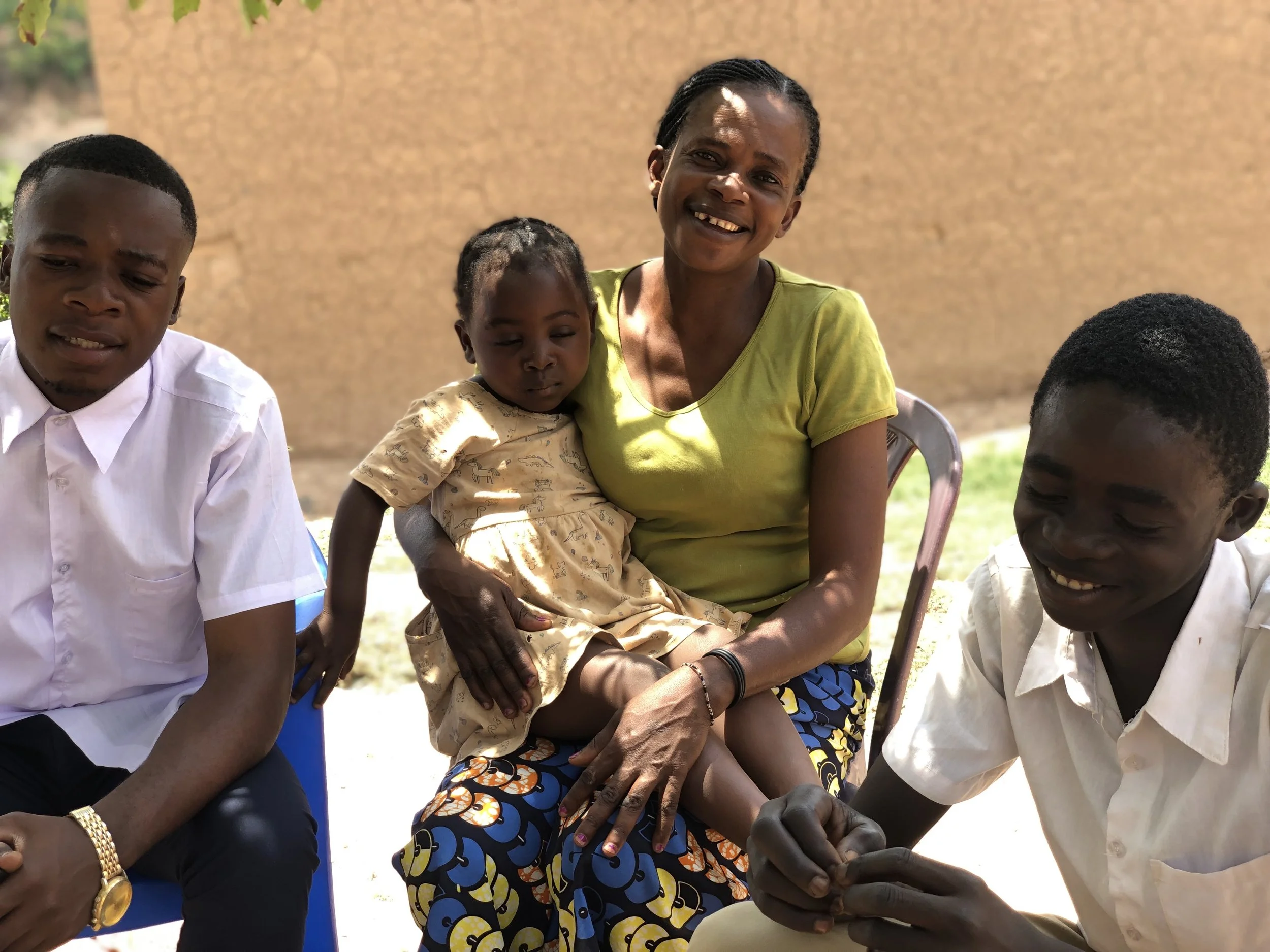In the communities where Hands at Work serves, a goat can be an important resource for a family; they are resilient and reproduce quickly, often having up to six kids annually. As Care Workers look after their goats and watch their goat family grow, they are essentially creating a ‘bank account’ of goats that they can sell and use the profits earned to purchase basic items for their families.
Meet Misheck
Meet Mama Safi
Meet Mwete
Meet Naomi and Miriam
Meet Amos
Staying Connected to Africa
The two of us who had previously gone to Africa through Hands at Work shared stories of what we might have experienced while there — stories of Holy Home Visits, attending local churches, and building relationships with long-term volunteers. At the end of the two weeks, the team realised that we would have arrived home. We agreed that we did not want to stop meeting.
Perfect Love that Drives out Fear
Across Africa, the idea of ‘social distancing’ is foreign, as relationships and social interaction are an integral part of the culture – which can be seen in families and in the interactions of people at the local marketplace. Together, these challenges have filled our Primary Caregivers, Care Workers and children with anxiety about what tomorrow will hold and a fear of the unknown.
‘Come Lord Jesus’
Worshipping God
Meet Liu
In February 2017, Emerance, a dedicated local volunteer Care Worker, from the Maisha Community Based Organisation (CBO) was passing by the fields and noticed four young children working in the field and Liu laying lifeless in her great-grandmother’s lap; helpless and severally malnourished. Emerance acted out of compassion and urgency and took the children directly to the Care Point, so they could receive a meal that day. She knew that if they did not eat, there was a possibility that they would not survive.
Meet Clement
In early 2015, while visiting children on Holy Home Visits, Care Workers came across Clement and his siblings once again. The children were begging for food and the four of them looked malnourished and unwell. The loving Christ-like hearts of the Care Workers compelled them to follow the children back to their home and find out more about their situation.
Meet Xiluva
At 10 years old, Xiluva* has faced challenges that no child should ever have to face. When her father passed away in 2010, Xiluva was living with her mother and three siblings in Mudzidzi, Mozambique. When her mother remarried in early 2016, she took the children to the community of Macadeira and abandoned them with their ageing grandmother, Orpa*. Xiluva’s world fell apart.
Meet Kamali
Stories of the Drought Crisis
“I planted 12 meda* of soya beans, I expected to harvest 18-20 x 50 kg bags. I only harvested 2 bags.”
“I planted 20 kg of maize seed, I expected to harvest 60 x 50 kg bags. There is no harvest; the rains just did not come after I planted.”
“I planted 15 kg of maize seed. From planting the same amount of seed last year, I harvested 32 x 50 kg bags. This year I only harvested 12 bags.”
Behind the Closed Door
Michael* is a 13-year-old boy who was found by Care Workers in Apatuku Community. As they knocked on the door of his home, it seemed, at first, deserted, but they heard a small voice croak from inside the home. As the Care Workers entered the house, they found Michael all alone and in a desperate situation.
Long Walk
In the mountainous area of Swaziland, nine-year-old Nolwazi leaves her house at five am to make the long two hour trek to school. Now that it is winter, it is very cold, and dark; often Nolwazi cannot even see the road in front of her. She walks alone in the dark for the first 45 minutes, and is gradually joined by other children along the way. Nolwazi does this walk every day, with nothing to eat or drink, Monday to Friday. By the time she gets back home after school, it is dark again.
Hope for a Bright Future!
When Nicholas* was just five years old, both of his parents tragically died in the same year, leaving him in the care of an uncle. His uncle was emotionally and physically abusive but with no one else to turn to, Nicholas was trapped in his home. His uncle refused to pay school fees so Nicholas was unable to attend school. Nicholas’ Aunt Mildred* visited the family and was appalled by Nicholas’ physical and emotional state.
Care Workers Across Africa
Care Workers are the key in bringing healing and transformation to the lives of our children. They are men and women from the local churches within our communities who recognize their Biblical mandate and answer their call to care for the most vulnerable children. They demonstrate what it means to give freely, love unconditionally, and sacrifice everything. Often, Care Workers face their own traumas and live in dire poverty, just as the children they care for do, but their determination to persevere and care despite their own circumstances challenges everyone they come into contact with. They are greatest in the Kingdom of God!
Full of Joy and Life!
Moses’ life is a miracle! His very existence speaks of the faithfulness of God and the loving compassion shown by the Care Workers of Zimba Community Based Organisation (CBO). Hilda, the Zimba coordinator, together with Charles, a local volunteer Care Worker, call Moses ‘the first child of Zimba CBO’.


















